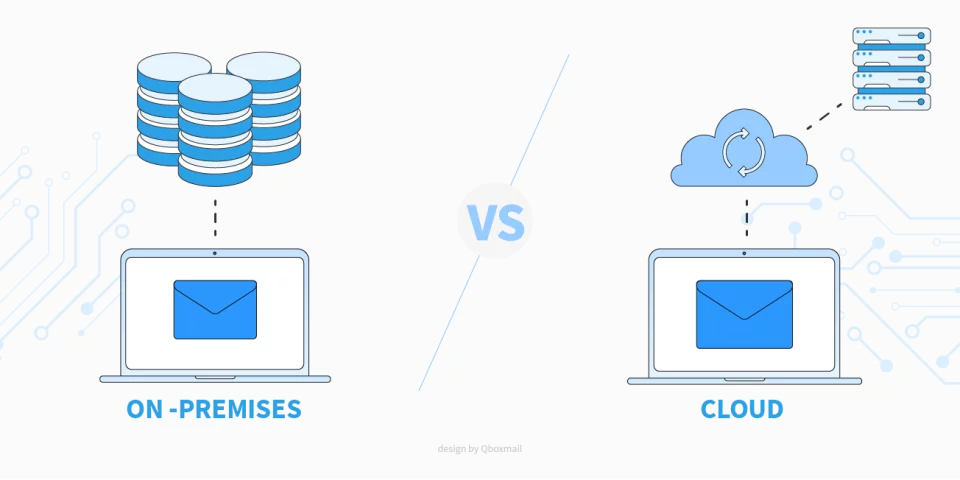How to stand out as an ICT provider

Competing with big players: a losing battle
Trying to compete with major ICT providers by copying their pricing strategies is a losing game. Large corporations can afford ultra-competitive prices thanks to economies of scale, diversified revenue streams, and aggressive marketing budgets.
Local ICT providers and resellers, on the other hand, have a different strength: proximity, personalized service, and agility.
Instead of engaging in a price war, the key to growth lies in offering value-added services and building strong customer relationships.
Service over price: why cheaper isn’t always better
A business searching for a professional email service might be tempted by the low-cost offers of a big provider. But what happens when they need security, backup solutions, and responsive support?
If you only sell email accounts, they will eventually find another provider offering more comprehensive services. But if you offer a fully managed solution, including phishing protection, backup services, and expert support, price becomes secondary.
Customers are willing to pay more for quality and reliability. Positioning yourself as a trusted technology partner rather than just a service provider makes the difference.
Customer service is your most powerful weapon
Being a smaller provider has a key advantage: speed. While large operators can take days to activate a service or respond to a support request, an agile provider can offer:
- fast activations, reducing waiting times
- seamless migrations, with dedicated technical support
- guaranteed response times, minimizing downtime
In email services, speed matters. Companies need quick resolutions for account migrations, security concerns, or urgent troubleshooting. Offering immediate support sets you apart from large-scale competitors who prioritize volume over individual service quality.
Don’t just sell email services, but complete solutions
A customer is not always looking for a single service. He often needs a complete solution that simplifies the IT management of the company.
Take the example of a professional email service: a customer might opt for a large operator with a basic offering, but what happens when they need more security, guaranteed backups, and technical support? If you sell just the email box, sooner or later someone else will offer them everything else as well.
Offering a complete package with phishing protection, email backups and specialized support allows you to differentiate yourself. A local provider cannot compete on volume, but it can compete on quality and service. Those who offer more are worth more. If the customer perceives value, price takes a back seat.
Adding value is the key
You are not just a service provider, you are a strategic IT partner.
Here’s what you can integrate into your offering:
- Email backup and ransomware protection
- Firewall and network security
- Advanced business technical support
- Proactive monitoring of IT infrastructure
Those who offer comprehensive packages don’t lose customers to competitors.
Speed of execution: the competitive advantage of local providers
A large operator can take months to upgrade an infrastructure, while a local provider can take action in a matter of days. This ability to act quickly is not only a strength, but a real competitive lever.
In the case of professional email, time is of the essence.
Companies cannot afford to wait for new accounts to be activated, accounts to be migrated, or a technical problem to be resolved. This is where a specialized provider can make a difference, offering:
- Quick activations, without long waits
- Seamless migrations, with dedicated technical support
- Reliable response times, to ensure business continuity
Being smaller than the big players is not a limitation, but an opportunity. A provider that guarantees quick and customized solutions will always have an advantage, because an efficient service is measured not only by functionality, but also by the time saved for the customer.
Build valuable relationships
Large providers see customers as numbers, and this is reflected in impersonal service. A local provider, on the other hand, has the opportunity to build a strong and lasting relationship, becoming a reliable point of reference.
Businesses are not just looking for a service, but a partner that will support them over time. Therefore, those who want to stand out must focus on loyalty, offering not only assistance, but also added value:
- Local events and meetings to create direct dialogue
- Training and webinars on cybersecurity and IT management
- Consulting services to help customers make the most of the solutions offered
A customer who feels followed and supported is unlikely to look for alternatives, even if there are cheaper offerings. Investing in the relationship with customers is not just a strategy, but a choice that ensures long-term stability and growth.
Your real advantage is to be different, not equal to the great
Big providers dominate the market with aggressive pricing and major advertising campaigns.
But you can win by playing a different game, by focusing on:
- Excellent, humane service
- A comprehensive and structured service offering
- Operational speed and flexibility
- Customer trust and loyalty
The future is not to compete on price, but to build value.
Are you ready to take the leap?



